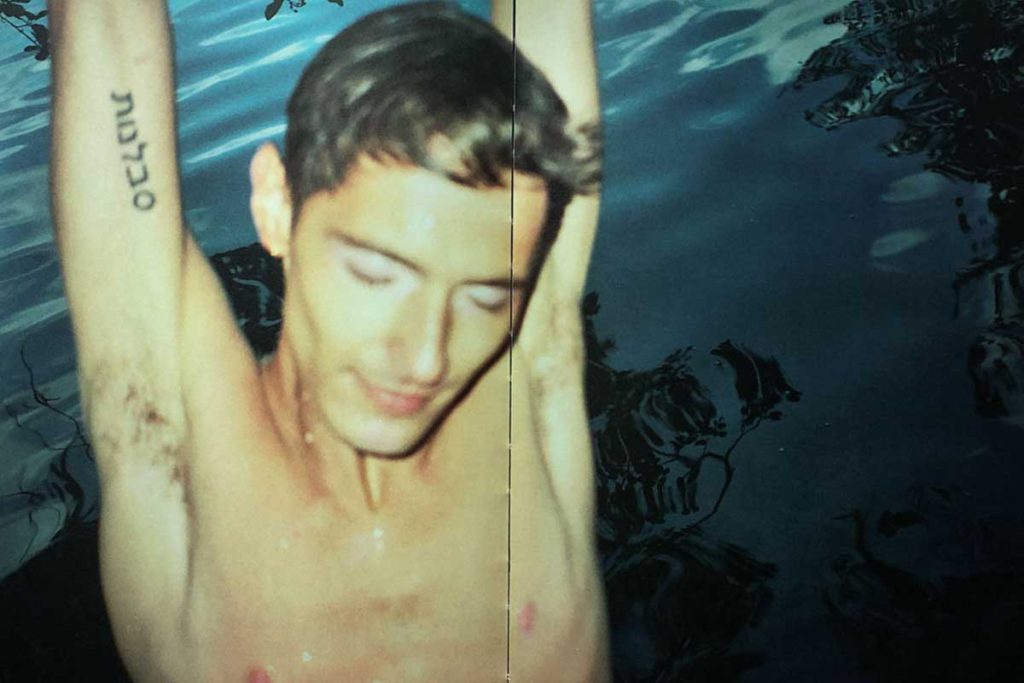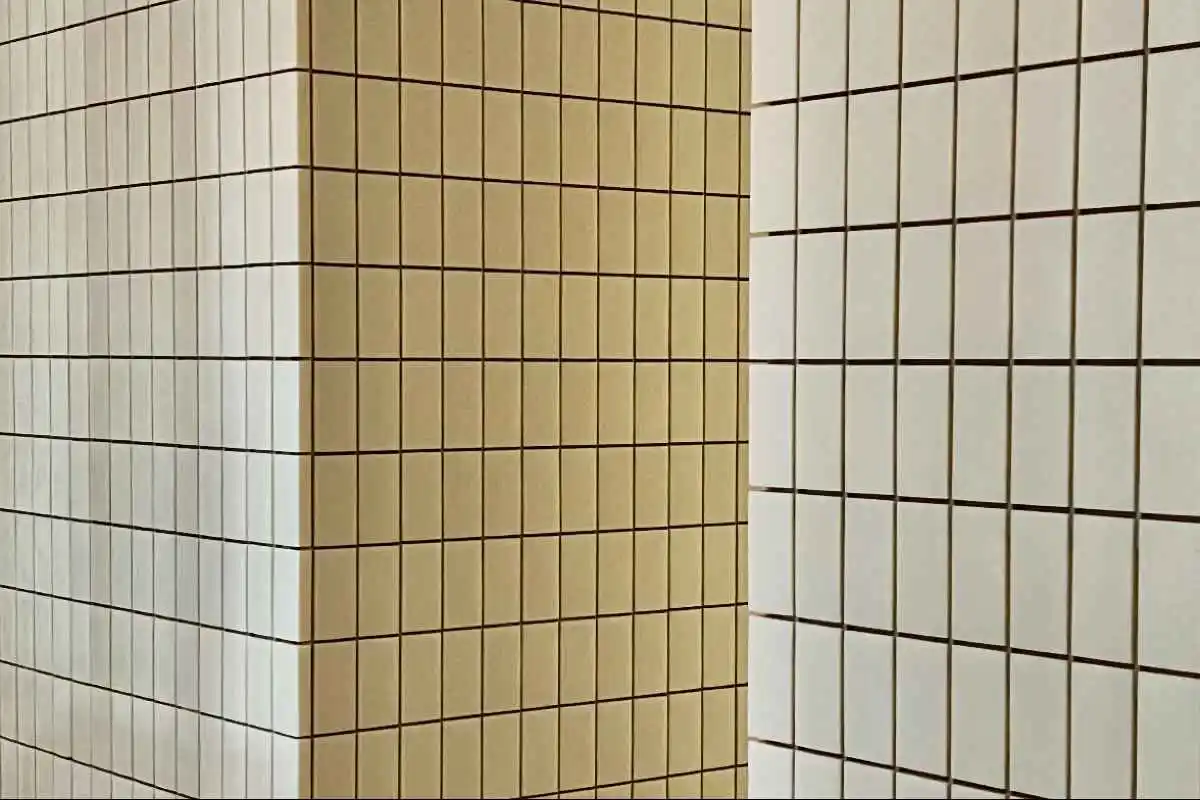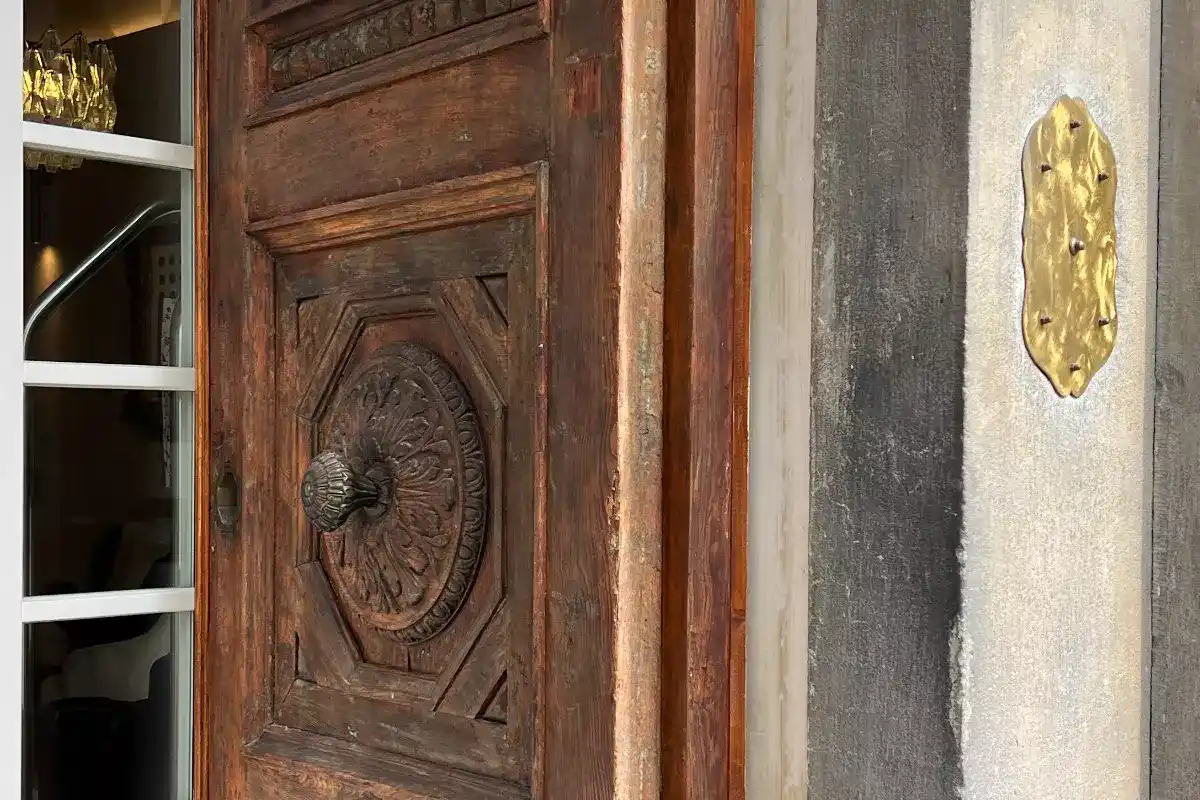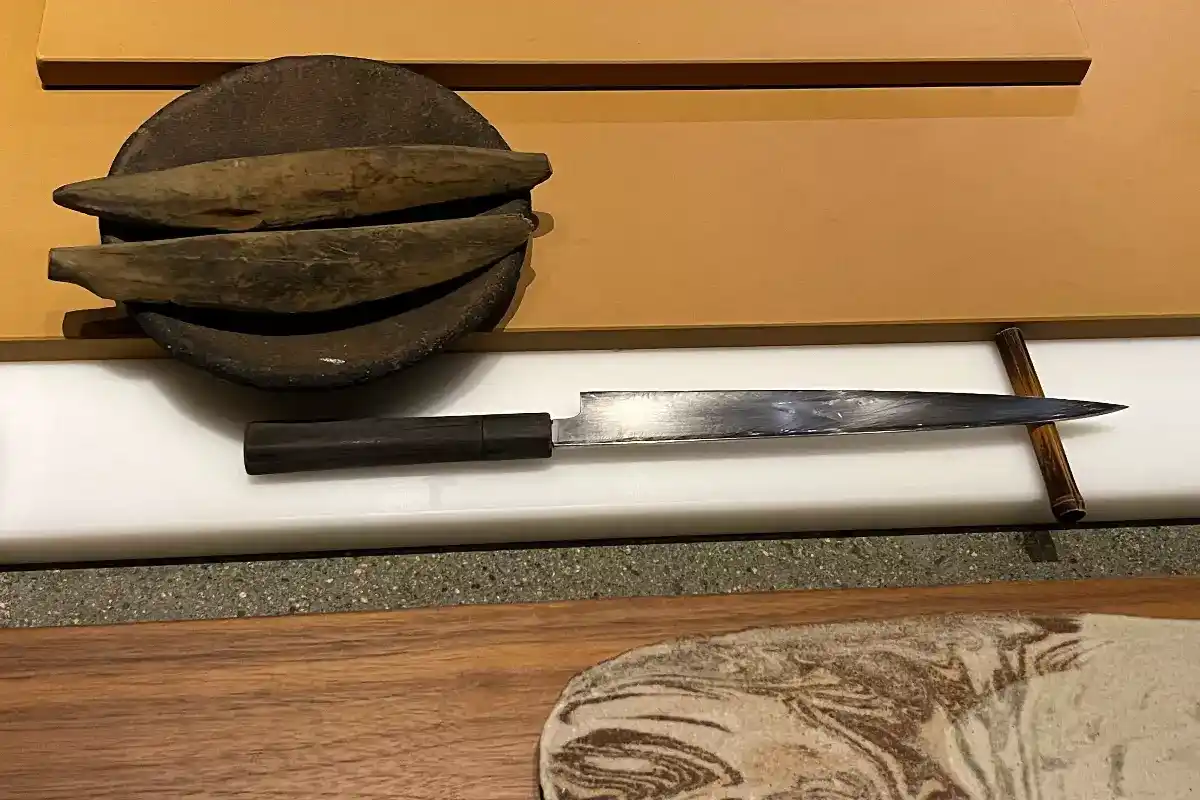Founder Copetti elucidates Brussels to be a melting pot for cultures and individuals of various ethnic backgrounds. This cultural zeitgeist has prompted for a mishmash in the consumption and composition in the arts and how businesses operate in the area
Tipi Bookshop in Brussels
Derived from the word ‘Teepee’, a conical-shaped tent used as shelter by Native American individuals, Tipi Bookshop holds no significance to the word in its physical shape, rather its identity and how it stands in the Saint-Gilles area of Brussels. In a rectangular building of eighty square meters in size, Tipi is divided into equal halves. The shared space hosts the bookstore as well as a workshop founded in 2019.
Tipi Bookshop is a metaphor brought to life. Forty-two year old owner Andrea Copetti explains, «the name is something I did not claim as my creation. Rather, I adopted the name as it fit with what I intended the bookshop to look like. A space with no nooks. Here, in fact, we celebrate a togetherness for works pushed out by artists and creators in the self-publishing world». He adds that his last name and the name of the store, ‘Tipi’, while sharing cadence, do not hold or share relevance.
The arrangement of magazines and photobooks sold within the four walls influenced the name of the store. Hosting these reading materials side-by-side, they are arranged in no order. Curating and implementing a sense of un-filtered cohesion similar to being in a circular-shaped room. As one feels when being inside a teepee. «There is no separation. I wish, in fact, to extend to the world the possibilities of what is to be offered to them. Works that cost ten thousand euros sit alongside books of five euros». The non-linear philosophy followed in Tipi Bookshop is how Copetti and his brand stand out in an ocean of bookstores, in Brussels and Belgium as a whole.
Andrea Copetti, owner and manager of Tipi Bookshop
Opened on the first of May 2012, Copetti has been the sole owner and manager of Tipi Bookshop. Manning a number of roles under his belt, he carries the ins-and-outs of the store by himself. «My tasks range from sourcing out creatives and authors, assisting in the creation of their works, selling them in store as well as on Tipi’s online store, conducting classes in the workshop and representing Tipi Bookshop in book fairs across Europe. These tasks have been a thrill».
A graduate artist and illustrator for children’s books himself, Copetti took on a course in photography that spanned five years at the École de Recherche Graphique in Brussels. His five-year tenure gained him inheritance to a publishing house owned by a lecturer of his. «Its name is ARP. It stands for Art and Research Publishing. Authors and photographers who publish works in photographical art are its focus».
Taking over the reins of the bookstore from his lecturer, Copetti managed the existing catalogue of books. Ten of them in total. His tasks entailed refreshing the longevity of the books while taking on projects with up-and-coming authors and creators alike. Having taken on this role for the span of five years post-graduation, Copetti then came to a fork in his journey as a publisher and a creator. To either founding a publishing house or to diverting his way into the world of bookselling. «I chose the latter, but implemented the former into the mix years into running Tipi. It suited my beliefs as a creator in the arts. I founded Tipi as a means to succor artists across the world. Even if it is within the walls of the bookshop».
Lampoon review: Tipi Bookshop’s location
Copetti, a Belgian national of Italian heritage, elucidates Brussels to be a melting pot for cultures and individuals of various ethnic backgrounds. This cultural zeitgeist has, therefore, prompted for a mishmash in the consumption and composition in the arts and how businesses operate in the area. «I was born and raised in Brussels. People in the environs speak in various languages. Switching from Dutch to English, Italian or Polish».
Hence, the choice in locating Tipi in the central district of Brussels worked in the favor of Copetti. He once lived in the space that is now the workshop. «My goal was to work during the night. Conducting research and completing business related errands and jumping back into the role of a bookseller in the morning, during business hours». Being familiar with the environs, Copetti understood the demographic and the community of artists and creators that lived in the area. He served these individuals by founding Tipi Bookshop.
Tipi Bookshop’s design
The shop lot that Tipi Bookshop resides in once belonged to an owner of a bookstore catering to left wing literature. Copetti acquired the space from the previous owner who had arranged the books in boxes scattered across the lot. Re-envisioning the internal identity of the store, Copetti utilized the walls with oak wood shelving units that date back to 1926. «The shelves showcase the front covers of the books. They implore an exploration of the books and pay homage to the graphic design to the covers of these books».
Furniture items like chairs and cushion sets came from thrift stores. Copetti shares that the refinement of a space by the hands of an architect could absolve the identity of the owner. Copetti did not want this for his establishment. «The arrangement of Tipi reflects my inner self. That is an aspect I wished to impart to customers walking into the store. There is, in fact, space to think and an area for people to wander through». On the anterior of the store are three floor-to-ceiling length windows. Equating it to the movie Smoke by Harvey Keitel, he shares that regular and returning customers follow the path of the sun when visiting the store. Having a photographic memory to know when to come into the store and when to not.
Tipi Bookshop, a bookstore recognizing the underrepresented
His education and ardor for the art itself and how expressions of a photograph can evoke emotions in a viewer influenced Copetti’s opening of Tipi. A bookstore selling works in photograph. A self-proclaimed hunter for images, Copetti’s need to imbue a tactile experience in consuming photographs led him to forming the bookshop.
The growing movement of dissatisfaction in the community of artists in Belgium, and across Europe, also motivated the force to manifest Tipi into a reality. Copetti had ascertained the root of this shared thinking to the early 1960s and 1970s, where publishers were tepid in representing new-found artists or encouraging the publishing of works by creators in the field of art. This, alongside bookstores and booksellers advocating and selling known works as a business model, further stifled artists and photographers who are unfamiliar to the publishing world.
«There was this inundation of works characterizing several bookstores in Brussels and Europe. This reiteration stunted growth for other creators and did not offer genres to consumers. I wanted to be that force for change». Copetti’s perseverance to integrate artists into the locale and in photography festivals across Europe has been a success. Assisting in honing a creator’s artistry into craft, Tipi Bookshop has become a force for change in the world for today, recognizing the underrepresented.
Re-defining what it means to be a creator and an author
Within the confines of the store, through the workshop, Copetti’s efforts to de-anonymize creators away from the confining and the hard-to-join world of publishing takes place in the forty square meter space. A wooden table and printing equipment that animates stillborn ideas into a reality enclose the workshop area. «I have in a sense guided individuals and creators. They vary from being in university to creators who have pursued self-publishing. University students in the field of art walk into the store to craft their final year projects. They are able to procure information regarding printers and paper providers based on their monetary means».
Plateauing accessibility for creators – regardless of their backgrounds and accolades they carry – Copetti and in extension, Tipi Bookshop, have urged the re-defining as to what it means to be a creator and author. «What you know, you teach. Through this teaching, you learn as well. It is a sense of community formed with creators who take part with the workshop. The tangible experience of showcasing works in a printed manner has held a better foothold in making a mark with one’s name and style in art. We have achieved this». Works created here in Tipi’s workshop have also travelled to photography fairs across Europe, Copetti shares.
Guiding artists and photographers
Copetti has since become an individual, as he calls it, with hats in varying fields. He, in fact, shares the ability to guide artists and photographers into forming concrete works for the world to be fulfilled. «When creators walk into Tipi, I take into consideration their concerns and work with their budget and material. Through this, we curate dummy-books. Then we go through them together to determine what is the best option through a consumer’s point of view». Through this assistance, Copetti imparts knowledge to his peers, where renowned publishing houses do not. His ethos to working within one’s means is a stressed belief that he shares with his peers. One can, in fact, get carried away when in the vein of self-publishing their work.
Completed works assisted by him are then sold here in the bookstore beside volumes of works that he has collected through his travels and perusing on the internet. Copetti explains albeit that there are people who come in to learn, and through this, publish their works and sell it in Tipi. Then, the volume of works procured through his research on the internet amounts in volume as well.
Reaching out to creators and photographers through recommendations of friends and his research is how Copetti has filled his library of books over time. Books sold here carry an allure like no other. Hosting content that amateur and professional creators and consumers can digest, shares Copetti. Those interested in theories of photography are able to purchase works from David Campany and Hans Ulrich Obrist.
Tipi Bookshop’s selection, events and sustainability
Laxed reading materials are works in the field of contemporary and modern photography and art. Boasting works by Jules Wild titled It was snowing outside (and it took her two days to notice). Bound in linen, the photobook offers a look into the life of the artist at her time in Ukraine. Other works include Photographs by Michael Schmidt and Ghost Witness by Marten Lange. Putting into the consideration of binding, paper, printing, and quality of content, Copetti brings into the bookshop photo books that are esoteric and fresh.
Prior to the pandemic, Tipi Bookshop has hosted events by photographers and creators in the area and abroad. They showcased artworks and celebrated book launches. The bookshop maintains their stance in keeping mindful environmental practices through re-usable bags in customers purchases, recycling items and re-using them to their end-life. In the near future, Copetti looks to carry, once again, his workshop classes. He would like to practice the self-publishing mindset, edifying a community of creators in Brussels and across Belgium.
Tipi Bookshop
Rue de l’Hôtel des Monnaies 186, 1060 Saint-Gilles, Belgium
Tipi Bookshop is a Brussels-based bookstore, devoted to self-published photobooks and small publishers from Belgium and around the world.




















